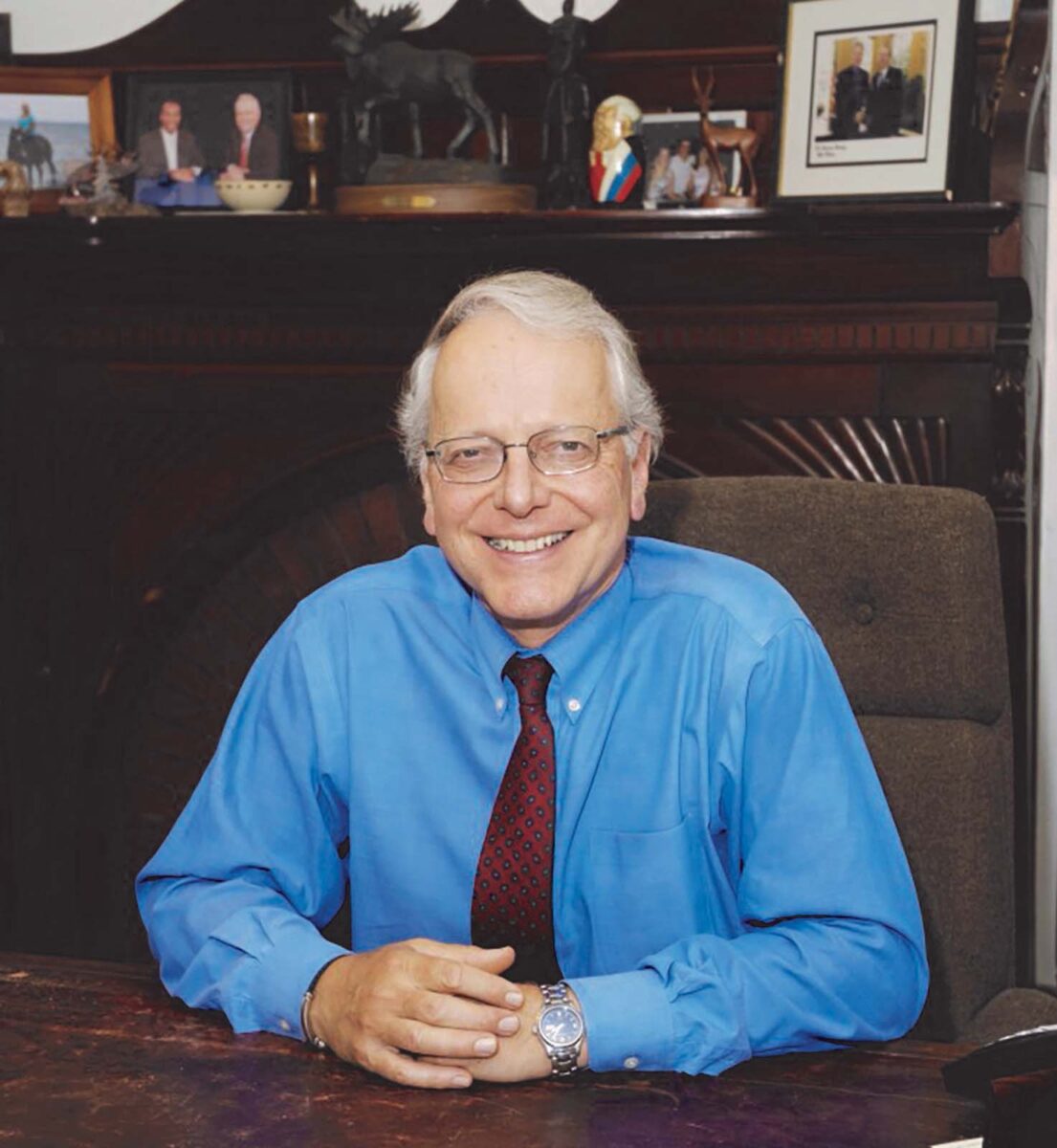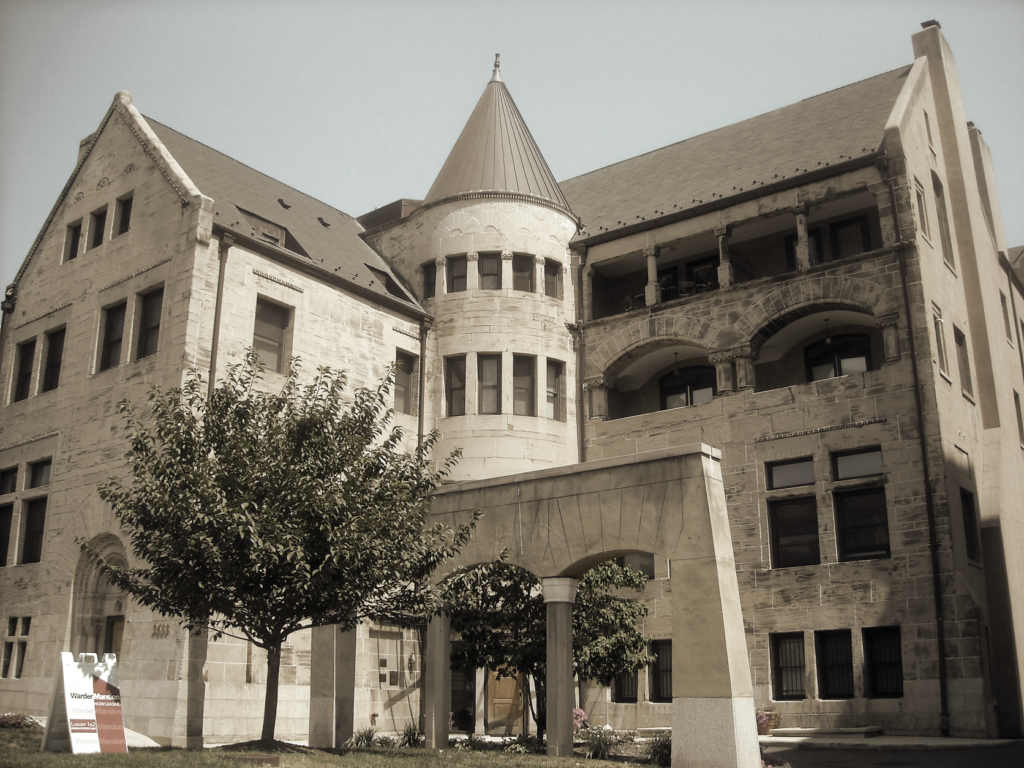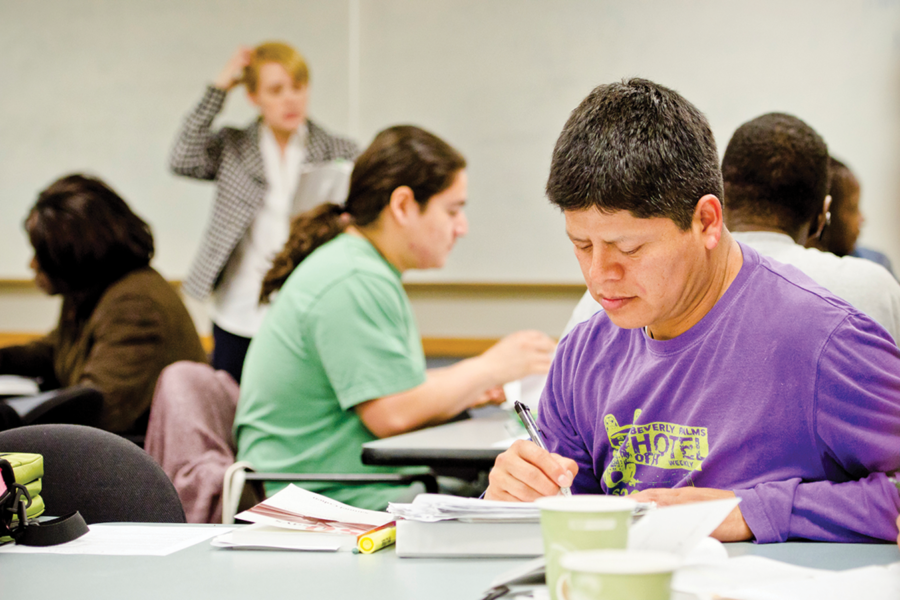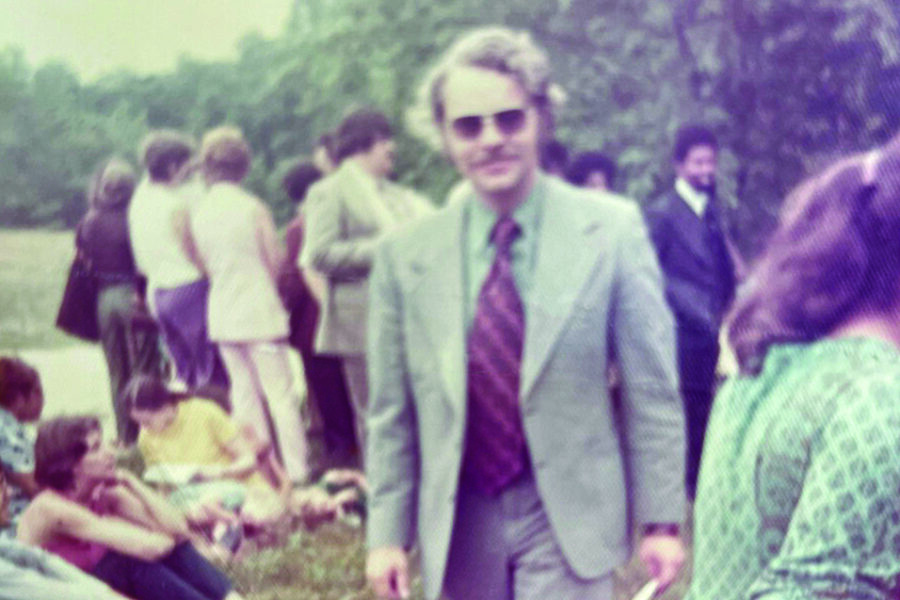
In 1971, Sherwood Guernsey had just finished a Peace Corps stint in rural Panama. Coming out of that, he says, he knew that he “wanted to somehow make a difference for people in the world—but I wasn’t sure how.” Idealistic, excited by hands-on experiences, and suspicious of traditional education, he was exactly the kind of student who often ends up at Antioch. But like many before him, he took a winding road before arriving at the right school.
First he enrolled at Wharton, thinking he could bring a more humane approach to business. “I attended for a term,” says Guernsey, “but I found I didn’t fit in. Every other person but one was talking about going to IBM or GM, and I had just come from a mud hut in Panama.” He dropped out and found a job at a social services agency in Philadelphia. Working in that system was more satisfying, but it ultimately convinced him that lawyers had a better chance than social workers of changing the rules of the game. So he decided to go to law school.
“But I didn’t want to go to any of the law schools who taught the regular method,” Guernsey recalls, “where the professor gets up there and throws questions at you about what you had just read and demeans you if you don’t have the right answer.” When he heard about Antioch School of Law, he said to himself, “Here’s one school that offers a different path.” He applied and enrolled in 1972, just as the law school was beginning its first year of existence.
In Washington, DC, he found that Antioch was perfect for him. “All the professors were actively practicing attorneys,” he explains. “They would have us analyze and go into court on actual cases they were working. That made all the difference.” Guernsey ended up observing the court that was trying the Deep Throat Case—the obscenity lawsuit around the blockbuster pornographic movie. He was thrilled.
“At a regular law school,” he explains, “you only read appellate cases where the facts are already settled.” At Antioch, they read those cases but also participated in law in practice. This was great preparation, he says. “In the real world, you have to listen to your client, sort out the key information…then analyze how the law applies, and, most importantly, make a recommendation. That’s been something that’s guided me ever since.”
After graduating from Antioch, Guernsey moved to the Berkshires, in Massachusetts. He ran for the state legislature and won. One of his proudest accomplishments was organizing Peace Corps volunteers to promote passage of the treaty that returned control of the Panama Canal Zone, which the US had occupied since 1903, to Panama. Every bit of organizing helped, explains Guernsey, as in the final tally “it passed the Senate by one vote.” Guernsey left the legislature after eight years and he set up the private law practice in Western Massachusetts that he runs this day.

Since graduating, Guernsey has seen much change in the University he loves. For one, Antioch School of Law separated from the University in 1986 (it is now the law school of the University of the District of Columbia). Guernsey remained connected to Antioch, though, and in 2002 he began serving on the University’s Board of Trustees. “I was there because Antioch Law School had meant so much to me,” he says. During his time serving, the Board made the contentious decision to temporarily close Antioch College. “That was the hardest vote I ever had to make—and I’d taken a lot of tough votes in the legislature,” says Guernsey. “We all wanted to see the campus reorganized and relaunched, and we had hoped to do that together with the alumni.” In the end the College’s alumni ended up restarting it as an independent institution—and the University survived the crisis and has continued to thrive. “So we both ended up with the goal we wanted,” says Guernsey.
Ultimately, through studying at Antioch, through becoming a state legislator, through his activism, through serving Antioch as a trustee, and through his law practice, Gurnsey has found his way of making a difference in the world. “Everyone finds different ways in promoting change for justice,” he says. “Everyone applies the skills they have. I felt I had the ability to organize people for change.”


